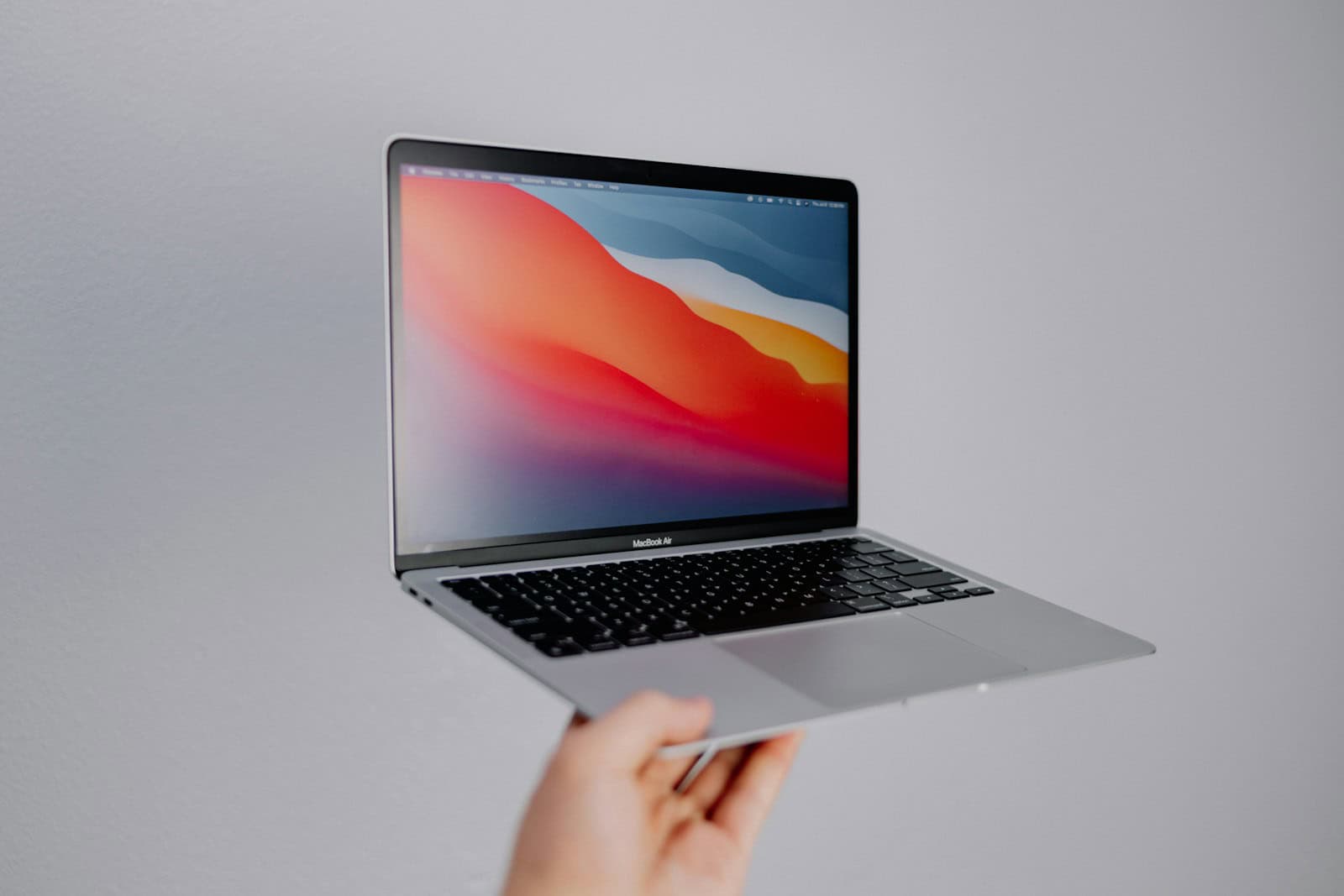MacBook Air owners often wonder which macOS versions their device can run. Knowing your Mac’s compatibility is crucial for staying up-to-date with the latest features and security updates. The newest MacBook Air models support macOS Sequoia 15, while older models can run earlier versions depending on their release year.
Apple regularly updates macOS, bringing new features and improvements. Each update may have different system requirements, so it’s important to check if your MacBook Air can handle the latest version. MacSales.com offers a handy Mac OS Compatibility Guide to help you determine which macOS versions work with your specific model.
Upgrading your MacBook Air’s operating system can breathe new life into your device. It can improve performance, add useful features, and patch security vulnerabilities. But before you upgrade, it’s wise to check if your MacBook Air meets the minimum requirements for the new macOS version you’re eyeing.
MacBook Air macOS Compatibility: Which Versions Are Supported?
Apple’s MacBook Air lineup has evolved dramatically since its debut in 2008, offering sleek design and impressive performance across Intel and Apple Silicon models. But as macOS continues to advance, not every MacBook Air can run the latest version.
In this guide, we’ll break down which macOS versions are supported on different MacBook Air models — including the latest releases: macOS Tahoe 26, macOS Sequoia 15, and macOS Sonoma 14.
🧭 Overview
Each new version of macOS introduces advanced features, better performance, and security improvements — but older hardware eventually loses support.
Apple typically supports MacBook Air models for 7–8 years after release, depending on the chipset and architecture (Intel vs. Apple Silicon).
🧩 Latest macOS Versions (as of 2025)
| macOS Version | Release Year | Key Features |
|---|---|---|
| macOS Tahoe 26 | 2025 | Enhanced AI-driven productivity tools, better iCloud sync, redesigned Control Center |
| macOS Sequoia 15 | 2024 | iPhone Mirroring, Passwords app, improved multitasking |
| macOS Sonoma 14 | 2023 | Interactive widgets, improved gaming performance, new video conferencing tools |
💻 MacBook Air macOS Compatibility Table
Below is a detailed compatibility chart showing which MacBook Air models support each macOS version.
| MacBook Air Model | Chip Type | Original macOS | Latest Supported macOS | Compatible with macOS Tahoe 26 | Compatible with macOS Sequoia 15 | Compatible with macOS Sonoma 14 |
|---|---|---|---|---|---|---|
| MacBook Air (M3, 2024) | Apple M3 | macOS Sequoia 15 | macOS Tahoe 26 | ✅ | ✅ | ✅ |
| MacBook Air (M2, 2022) | Apple M2 | macOS Ventura 13 | macOS Tahoe 26 | ✅ | ✅ | ✅ |
| MacBook Air (M1, 2020) | Apple M1 | macOS Big Sur 11 | macOS Sequoia 15 | ❌ | ✅ | ✅ |
| MacBook Air (Retina, 2020 – Intel) | Intel i3/i5/i7 | macOS Catalina 10.15 | macOS Sonoma 14 | ❌ | ❌ | ✅ |
| MacBook Air (Retina, 2019) | Intel i5 | macOS Mojave 10.14 | macOS Sonoma 14 | ❌ | ❌ | ✅ |
| MacBook Air (2018) | Intel i5 | macOS Mojave 10.14 | macOS Sonoma 14 | ❌ | ❌ | ✅ |
| MacBook Air (2017) | Intel i5 | macOS Sierra 10.12 | macOS Monterey 12 | ❌ | ❌ | ❌ |
| MacBook Air (2015–2016) | Intel i5/i7 | macOS Yosemite 10.10 | macOS Monterey 12 | ❌ | ❌ | ❌ |
| MacBook Air (2013–2014) | Intel i5/i7 | macOS Mountain Lion 10.8 | macOS Big Sur 11 | ❌ | ❌ | ❌ |
| MacBook Air (2012 and earlier) | Intel i5/i7 | macOS Lion 10.7 | macOS Catalina 10.15 | ❌ | ❌ | ❌ |
✅ = Supported ❌ = Not Supported
🧠 Key Takeaways
- macOS Tahoe 26 (2025) supports M1, M2, and M3 MacBook Air models.
- macOS Sequoia 15 (2024) supports M1 and newer.
- macOS Sonoma 14 (2023) supports Intel-based Retina models (2018–2020) and all Apple Silicon models.
- Older Intel MacBook Airs (pre-2018) are no longer supported beyond macOS Monterey or Big Sur.
🔧 How to Check Your MacBook Air Model
- Click the Apple menu in the top-left corner.
- Select About This Mac.
- Note your model name (e.g., MacBook Air (M2, 2022)).
- Compare it with the table above to see which macOS versions you can install.
⚙️ How to Update macOS on MacBook Air
- Go to System Settings → General → Software Update.
- If a new version is available, click Update Now or Upgrade Now.
- Make sure your MacBook Air is plugged in and backed up before updating.
💡 Tip: If your device isn’t eligible for the latest macOS, you’ll still receive security updates for your current version for about 2–3 years.
🛡️ What If Your MacBook Air Is No Longer Supported?
If your MacBook Air isn’t compatible with the latest macOS:
- Stay on your current version and install all available security patches.
- Consider upgrading to a newer MacBook Air model (M2 or M3) for long-term support.
- Advanced users: Tools like OpenCore Legacy Patcher can install newer macOS versions unofficially — but this is not recommended for beginners.
🏁 Final Thoughts
Keeping your MacBook Air updated ensures you get the best performance, features, and security.
As of 2025:
- macOS Tahoe 26 is the newest version, supporting M1 and newer.
- Intel-based MacBook Airs (2018–2020) top out at macOS Sonoma 14.
If your MacBook Air is more than 7 years old, it might be time to upgrade — Apple’s latest M-series models deliver incredible speed, battery life, and future-proof macOS compatibility.
Evolution of MacOS and MacBook Air Compatibility
The MacBook Air‘s compatibility with macOS has evolved significantly over the years. This evolution reflects both hardware advancements and Apple’s software development strategies.
Early MacOS Versions and Compatibility
MacBook Air models from 2013 to 2017 supported a wide range of macOS versions. The 2013 MacBook Air could run macOS 10.14 Mojave as its latest version. 2014 and 2015 models extended support to macOS 10.15 Catalina.
2016 and 2017 MacBook Airs were compatible with macOS 11 Big Sur. This provided users with access to newer features and security updates for several years after purchase.
Apple typically supported MacBook Airs with macOS updates for about 7 years after their release date. This ensured long-term usability and security for these devices.
Transition to Apple Silicon and M-Series Macs
The introduction of Apple Silicon marked a significant shift in MacBook Air compatibility. M1 MacBook Airs, released in 2020, started with macOS 11 Big Sur. These models can run the latest macOS versions, including macOS 15 Sequoia.
M-series Macs offer improved performance and energy efficiency. They also provide compatibility with iOS apps, expanding the software ecosystem for MacBook Air users.
| MacBook Air Model | Earliest macOS | Latest Supported macOS |
|---|---|---|
| 2013-2014 | 10.9 Mavericks | 10.15 Catalina |
| 2015-2017 | 10.10 Yosemite | 11 Big Sur |
| M1 (2020+) | 11 Big Sur | 15 Sequoia (Current) |
This transition ensures that newer MacBook Air models will continue to receive updates and new features for years to come.
Understanding MacBook Air Model Releases
MacBook Air models have evolved significantly since their introduction. Apple has released several iterations with improved features and designs to meet user needs.
Identifying Different MacBook Air Models
MacBook Air models can be identified by their release year and specific features. The MacBook Air (M1, 2020) marked a significant shift with Apple’s custom M1 chip. Earlier models like the MacBook Air (Retina, 13-inch, 2020) and (Retina, 13-inch, 2019) featured Intel processors.
To identify your model:
- Click the Apple menu
- Select “About This Mac”
- Note the model name and year
This information helps determine macOS compatibility for your device.
MacBook Air Design and Feature Iterations
MacBook Air designs have changed over time. The 2018 model introduced the Retina display to the Air lineup. Key improvements include:
- Thinner bezels
- Higher resolution screens
- Enhanced keyboards
| Year | Key Features |
|---|---|
| 2020 | M1 chip, fanless design |
| 2019 | True Tone display |
| 2018 | Retina display, Touch ID |
| 2017 | Updated processor |
Recent models offer better performance and longer battery life. The M1 chip in the 2020 model provides significant speed improvements over Intel-based predecessors.
MacBook Air and MacOS Upgrade Considerations
Upgrading your MacBook Air’s operating system can enhance performance and security. But it’s crucial to check compatibility and prepare your device properly.
Maximizing Performance with MacOS Upgrades
MacOS upgrades often bring speed improvements and new features to your MacBook Air. To get the best results, check your Mac’s compatibility with the latest version. Clean up your hard drive before upgrading. Remove unused apps and files to free up space.
Update your apps to versions that work with the new MacOS. This prevents software conflicts after the upgrade. Back up your data using Time Machine or another backup solution. This protects your files in case of upgrade issues.
Consider upgrading your MacBook Air’s RAM or switching to an SSD if possible. These hardware upgrades can significantly boost performance with newer MacOS versions.
Software and Hardware Compatibility
Before upgrading, use the MacOS compatibility checker to ensure your MacBook Air model supports the new version. Older MacBook Air models may not run the latest MacOS releases.
Check if your essential apps work with the new MacOS. Visit developers’ websites or the App Store for compatibility info. Some older software may need updates or replacements.
| MacBook Air Model | Latest Compatible MacOS |
|---|---|
| 2020 and later | MacOS Sequoia (2024) |
| 2018-2019 | MacOS Monterey (2021) |
| 2015-2017 | MacOS Big Sur (2020) |
Thunderbolt 3 ports on newer MacBook Air models ensure compatibility with modern accessories. Older models may need adapters for new peripherals.
Frequently Asked Questions
MacBook Air users often have questions about macOS compatibility and updates. Here are some common queries and their answers to help you navigate your device’s operating system.
What is the latest version of macOS compatible with my MacBook Air?
The latest macOS version for MacBook Air is macOS Sequoia. It’s compatible with MacBook Air models from 2019 and later.
Older MacBook Air models can run earlier macOS versions. Check your device’s specifications to determine its maximum compatible macOS version.
How can I determine if my MacBook Air supports the recent macOS updates?
You can check your MacBook Air’s compatibility with recent macOS updates in two ways:
- Visit the Apple menu and select “About This Mac” to see your current macOS version.
- Use Apple’s official macOS compatibility checker to find out which versions your device supports.
Which MacBook Air models are eligible for the macOS Big Sur upgrade?
MacBook Air models from 2013 and later can run macOS Big Sur. This includes:
- MacBook Air (Retina, 13-inch, 2020)
- MacBook Air (Retina, 13-inch, 2018-2019)
- MacBook Air (13-inch, 2015-2017)
- MacBook Air (11-inch, Early 2015)
- MacBook Air (13-inch, Early 2015)
- MacBook Air (11-inch, Early 2014)
- MacBook Air (13-inch, Early 2014)
- MacBook Air (11-inch, Mid 2013)
- MacBook Air (13-inch, Mid 2013)
Are there any specific requirements for installing macOS Ventura on a MacBook Air?
To install macOS Ventura on your MacBook Air, you need:
- A compatible model (2018 or later)
- At least 20GB of free storage space
- An active internet connection
Ensure your device meets these requirements before attempting to install macOS Ventura.
What are the steps to download and install a new macOS on a MacBook Air?
Follow these steps to download and install a new macOS:
- Back up your data using Time Machine
- Open the App Store and search for the macOS version
- Click “Get” or the download icon
- Follow the on-screen instructions to complete the installation
The process may take 30-60 minutes depending on your internet speed and Mac’s performance.
How to find out the current macOS version on my MacBook Air?
To check your current macOS version:
- Click the Apple menu in the top-left corner
- Select “About This Mac”
The window that appears will display your macOS version along with other system information.
| macOS Version | Release Year | Minimum MacBook Air Model |
|---|---|---|
| Sequoia | 2024 | 2019 |
| Sonoma | 2023 | 2018 |
| Ventura | 2022 | 2018 |
| Monterey | 2021 | 2015 |
| Big Sur | 2020 | 2013 |







